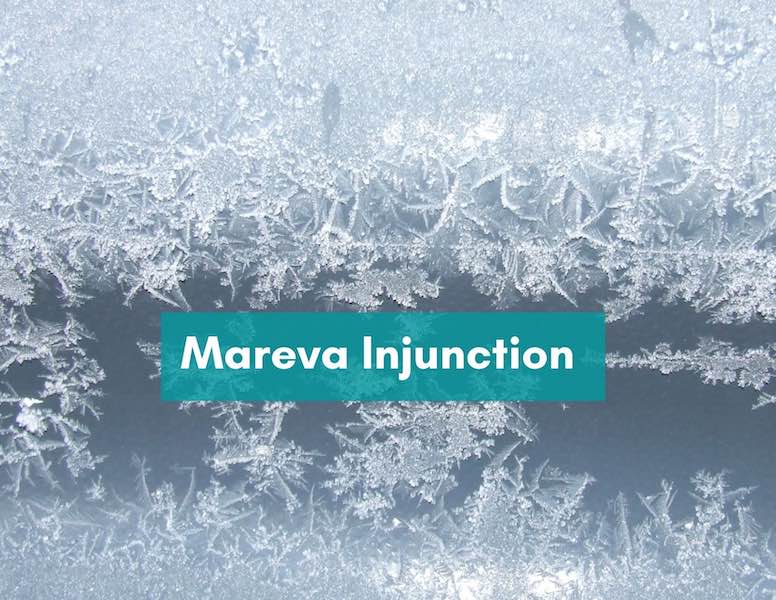Mareva Injunctions: Full and Frank Disclosure
by Rachel Ng Li Hui ~ 26 December 2020
Introduction
Mareva Injunctions (also known as freezing orders) are usually applied vide an ex-parte application (only the applicant is present).
In ex-parte applications, it is an applicant’s duty to the Court to make the fullest possible disclosure of all material facts within the applicant’s knowledge.
This is especially so when Mareva Injunctions have the effect of depriving another of his legal right.
See: Dalglish v Jarvie (1850) 2 Mac & G 231, 42 ER 89.
This disclosure of fact would include material facts that a defendant would presumably have brought forward. Failing to do so will result in a failed Mareva Injunction application.
See: Order 29 rule 2A; Thomas A Edison Ltd v Bullock (1912) 15 CLR 679.
Material Facts
What are material facts?
Material facts are facts necessary for the judge to exercise his discretion properly and fairly between the parties given that he has not heard from the defendant. In other words, material facts are facts when suppressed, would mislead the Court, or have the effect that if the full picture was presented to the Court, the Court will not grant the injunction. (See: Kepong Industrial Park Sdn Bhd & Ors v Teoh Seng Aun & Ors [1999] 5 MLJ 688; Professor Dr A Kahar Bador & Ors v N. Krishnan & Ors [1983] 1 MLJ 407)
The presentation of the material facts also has a bearing on whether a Mareva Injunction should be allowed. The Singaporean Court of Appeal in The “Vasiliy Golovnin” [2008] SGCA 39 (“Vasiliy”) elucidated that material facts must be presented clearly:
“In other words, we are concerned with how the material facts can best be presented to the court so as to ensure that the court receives the most complete and undistorted picture of the material facts, sufficient for its purpose of making an informed and fair decision on the outcome of the application, such that the threshold of full and frank disclosure can be meaningfully said to be crossed.”
The material facts must be presented clearly to the Court, because, and at the risk of repetition, the Court can only exercise its discretion when an applicant has made full and frank disclosure of all material facts in his application. (See: Creative Furnishing Sdn Bhd v Wong Koi [1989] 2 MLJ 153, SC)
Practical Challenges In Determining Material Facts
(1) Challenges
Though it is important that applicants in ex-parte applications diligently observe their duties in making full disclosure of all material facts lest the Court be misled, the practicalities of preparing a Mareva Injunction cannot be overlooked as well.
Preparing Mareva Injunctions usually involve taking instructions and preparing drafts in haste. Further, in convoluted commercial cases, the demarcation between material facts and “normal” facts blurs.
(2) Solutions
One should ask himself whether the non-disclosure of a particular fact is so severe that the Court would not have granted the Mareva Injunction or if it would be misleading in the absence of this fact. (See: Damayanti Kantilal Doshi & Anor V Jigarlal Kantilal Doshi [2004] 1 MLJ 456, CA)
If the fact is important per item (1) above, one should explain the fact in the affidavit in support instead of merely exhibiting it (See: Vasiliy):
“Thus, it is for the applicant’s counsel, in his or her presentation of the material facts, to draw the judge’s attention to the relevant papers, and it is not sufficient to produce exhibits which contain the papers if no specific reference is made to them; a failure to refer to material documents is a failure to disclose.”
Disclosing Adverse Material Facts
Order 29 rule 2A of the Rules of Court 2012 requires an applicant to disclose arguments that the defendant will likely assert and any facts which might lead the court not to grant the Mareva Injunction.
Failure to do so would result in the Mareva Injunction application being dismissed without consideration of the merits of the application or whether the non-disclosure is innocent or deliberate. See: Pathma Naganather & Anor v Nivedita Naganather [2002] 6 MLJ 361.
Duty To Make Proper Inquiries
When making full and frank disclosure, an applicant must make proper inquiries to ascertain the existence of any additional facts which may determine whether there is material non-disclosure of facts.
The extent of this proper inquiry will depend on the circumstances of the facts, the nature of the application, the effect of the order on the defendant, the degree of urgency, and the time available for making the inquiries. (See: Brink’s-Mat Ltd v Elcombe and Others [1988] 3 All ER 188 [1988] 3 All ER 188)
Conclusion
Since a Mareva Injunction is a draconian order often made in the absence of the defendant (at the ex-parte stage), the Court must be cognizant of all the material facts in the application to make a just decision.
As such, an applicant must make full and frank disclosure of all material facts, including facts adverse to his case in applying for a Mareva Injunction. Failing to do so is fatal to his application.

